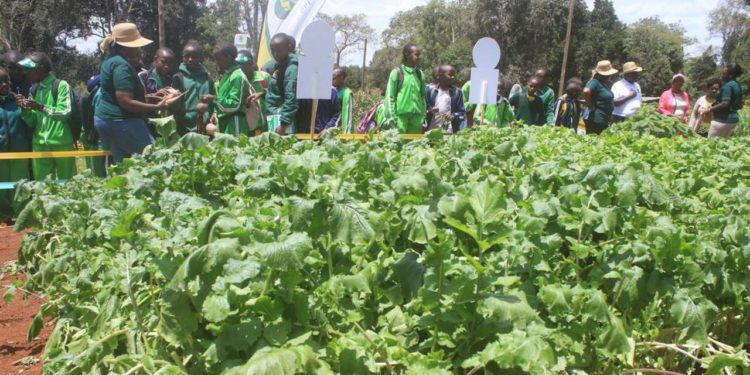Dr Sam Oti, a Senior Programme Specialist at the Global Health Division of Canada’s International Development (IDRC), said the emissions from agricultural activities have significantly increased and are unlikely to reduce given the continent’s current rate of production.
“These top emitters are a major contributor to the agriculture-related emissions on the continent, which have risen by a staggering 243 per cent in the last 50 years,” said Dr Oti.
Dr Oti spoke at the Fourth African Conference of Science Journalists hosted by the Media for Environment, Science, Health and Agriculture (Mesha).
The virtual event attracted 375 participants from all over the world, including scientists, science journalists, government officials and experts in public health, health financing, medical research and policy formulation.
Largest emitters
The IDRC expert said the largest emitters in Africa are waste-related or enteric fermentations from cows (38 per cent), manure left on pasture (27 per cent), burning of savannahs (24 per cent), synthetic fertilisers and water used for paddy rice irrigation (three per cent).
Dr Oti lamented that the planet is busy with a mad rush to produce food using available resources while producing large amounts of waste. This situation, he said, has persisted despite the shortage of food in marginalised regions and parts of the population.
He said it is time for far-reaching changes in the way the continent manages its food sector.
“Africa can no longer afford to do business as usual in the food sector. Some countries are trying to move their people away from eating meat, whose large-scale production puts a lot of strain on the environment. We need to decide whether we will take meat or not,” said the expert.
Africa’s drive to achieve food security, he further said, is a difficult task given “the multiple burdens of malnutrition, food insecurity, food safety issues, unclear policies and competing priorities like infectious diseases and emergency outbreaks”.
The 2020 United Nations Global Nutrition Report indicates that one in every nine people, or approximately 11 per cent of the world’s population, is affected by stunting. United Nations Children’s Fund (Unicef) data also shows that one in every five children aged under five is stunted.
“Meanwhile, our world has transitioned to one in which more people of all ages are more obese than underweight, with one in three people either overweight or obese. Among children under five, 21.9 per cent are stunted, while 49.5 million or 7.3 per cent are wasted, with 40.1 million or 5.9 per cent classified as overweight,” the report reads.
Out of 143 countries surveyed in the report, most of the 37 countries with high reported levels of stunting, wasting and obesity were found in Africa.
Resource wastage
Dr Oti regretted the modern but careless tendency to waste the world’s natural resources and degrade the environment in pursuit of commercial agricultural profits.
“We are literally eating ourselves to death. Today, we use one-third of the planet’s surface to produce food,” said Dr Oti.
He also noted that the planet’s drive to produce food had resulted in increased use of fresh water for the activity.
“Almost 70 per cent of fresh water used in the world is directed to agricultural production. For every kilogramme of rice produced, we consume 340 gallons of water. Agriculture and food production contributes between 20 and 30 per cent of greenhouse gases emitted in total,” he said.
Dr Oti said other challenges to continental food security are food wastage, limited research capacity and funding, consumers’ lack of knowledge on food conservation as well as social and cultural barriers.
To reduce emissions and natural resource wastage, he asked African nations to adopt and use climate-smart technology on farms.
He also rooted for modern food production and preservation methods that incorporate big data, artificial intelligence and other fourth industrial revolution (4IR) tools.










